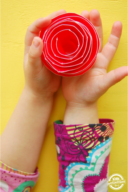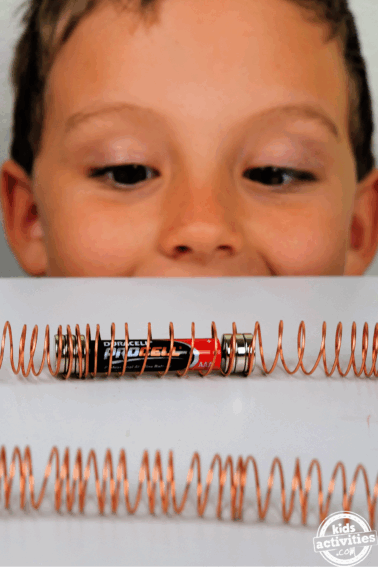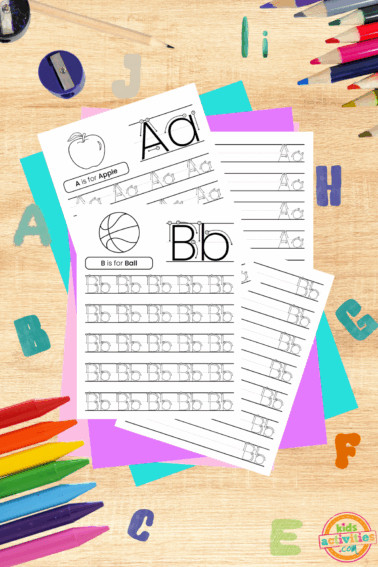If your child is a good student with a can-do attitude about life, he or she probably has the confidence to take on new academic challenges. But if he or she is insecure, the belief that I ™m just not smart could lead to a cycle of failure and frustration. Here are some tips for building the kind of confidence your child needs to succeed academically “ and for appropriately acknowledging progress along the way:
 The early years
The early years. From your baby's first steps to the learning of the alphabet, the years before kindergarten are full of challenges. Children who are generously praised for these accomplishments internalize the message that I ™m smart and develop a sense of capability and a desire to learn and do more. So it's important to catch your son or daughter being good and praise that behavior. Building self-esteem in the home will instill self-confidence as he or she heads off to school.
Elementary school. As your child moves through elementary school, being well-organized, cooperating with others and doing neat and careful work will all have a direct impact on academic success. For this reason, you should nurture “ and praise “ your child's willingness to keep his bedroom tidy and his ability to overcome conflicts with siblings and neighborhood rivals. Carefully reviewing homework will send the message that accuracy and neatness are valued, and will help your child build the confidence that comes with well-presented work.
Middle school. In middle school, your child will face complicated academic challenges while grappling with peer pressure and a desire for independence. Middle school is also a critical academic juncture for students who are struggling “ a time when many basically give up on their dreams of graduation and higher education.
For these reasons, it's important to pay special attention to self-esteem issues and academic performance during this period. Be alert to any signs that your child is being bullied or is having trouble making friends (visit www.stopbullyingnow.hrsa.gov) to learn what to look for and how to respond). Help your child discover special talents that can boost self-esteem by taking advantage of extra-curricular opportunities through the school or your community. And pay special attention to test scores and report cards for any signs that your child is falling behind.
Secondary school. From the first romantic break-up, to not making the soccer team, the teen years can wreak havoc on your child's self-image. You can help your child get past these disappointments by continuously reinforcing the understanding that there really is life after high school. Talk with your child about how you overcame your own setbacks, and look for frequent occasions to call attention to your child's real talents.
Once your child has a
restored faith in the future, it will be easier to get back to the books and concentrate on being a good student “ which will build the kind of well-deserved self-esteem that will carry over to
success in college and in life.
 Article provided by Huntington Learning Center, which has been helping children succeed in school for more than 30 years. For more information about Huntington, call 1-800 CAN LEARN.
Article provided by Huntington Learning Center, which has been helping children succeed in school for more than 30 years. For more information about Huntington, call 1-800 CAN LEARN. The early years. From your baby's first steps to the learning of the alphabet, the years before kindergarten are full of challenges. Children who are generously praised for these accomplishments internalize the message that I ™m smart and develop a sense of capability and a desire to learn and do more. So it's important to catch your son or daughter being good and praise that behavior. Building self-esteem in the home will instill self-confidence as he or she heads off to school.
Elementary school. As your child moves through elementary school, being well-organized, cooperating with others and doing neat and careful work will all have a direct impact on academic success. For this reason, you should nurture “ and praise “ your child's willingness to keep his bedroom tidy and his ability to overcome conflicts with siblings and neighborhood rivals. Carefully reviewing homework will send the message that accuracy and neatness are valued, and will help your child build the confidence that comes with well-presented work.
Middle school. In middle school, your child will face complicated academic challenges while grappling with peer pressure and a desire for independence. Middle school is also a critical academic juncture for students who are struggling “ a time when many basically give up on their dreams of graduation and higher education.
For these reasons, it's important to pay special attention to self-esteem issues and academic performance during this period. Be alert to any signs that your child is being bullied or is having trouble making friends (visit www.stopbullyingnow.hrsa.gov) to learn what to look for and how to respond). Help your child discover special talents that can boost self-esteem by taking advantage of extra-curricular opportunities through the school or your community. And pay special attention to test scores and report cards for any signs that your child is falling behind.
Secondary school. From the first romantic break-up, to not making the soccer team, the teen years can wreak havoc on your child's self-image. You can help your child get past these disappointments by continuously reinforcing the understanding that there really is life after high school. Talk with your child about how you overcame your own setbacks, and look for frequent occasions to call attention to your child's real talents.
Once your child has a restored faith in the future, it will be easier to get back to the books and concentrate on being a good student “ which will build the kind of well-deserved self-esteem that will carry over to success in college and in life.
The early years. From your baby's first steps to the learning of the alphabet, the years before kindergarten are full of challenges. Children who are generously praised for these accomplishments internalize the message that I ™m smart and develop a sense of capability and a desire to learn and do more. So it's important to catch your son or daughter being good and praise that behavior. Building self-esteem in the home will instill self-confidence as he or she heads off to school.
Elementary school. As your child moves through elementary school, being well-organized, cooperating with others and doing neat and careful work will all have a direct impact on academic success. For this reason, you should nurture “ and praise “ your child's willingness to keep his bedroom tidy and his ability to overcome conflicts with siblings and neighborhood rivals. Carefully reviewing homework will send the message that accuracy and neatness are valued, and will help your child build the confidence that comes with well-presented work.
Middle school. In middle school, your child will face complicated academic challenges while grappling with peer pressure and a desire for independence. Middle school is also a critical academic juncture for students who are struggling “ a time when many basically give up on their dreams of graduation and higher education.
For these reasons, it's important to pay special attention to self-esteem issues and academic performance during this period. Be alert to any signs that your child is being bullied or is having trouble making friends (visit www.stopbullyingnow.hrsa.gov) to learn what to look for and how to respond). Help your child discover special talents that can boost self-esteem by taking advantage of extra-curricular opportunities through the school or your community. And pay special attention to test scores and report cards for any signs that your child is falling behind.
Secondary school. From the first romantic break-up, to not making the soccer team, the teen years can wreak havoc on your child's self-image. You can help your child get past these disappointments by continuously reinforcing the understanding that there really is life after high school. Talk with your child about how you overcame your own setbacks, and look for frequent occasions to call attention to your child's real talents.
Once your child has a restored faith in the future, it will be easier to get back to the books and concentrate on being a good student “ which will build the kind of well-deserved self-esteem that will carry over to success in college and in life.
 Article provided by Huntington Learning Center, which has been helping children succeed in school for more than 30 years. For more information about Huntington, call 1-800 CAN LEARN.
Article provided by Huntington Learning Center, which has been helping children succeed in school for more than 30 years. For more information about Huntington, call 1-800 CAN LEARN.




















When I was a child, I experienced this kind of dilemma. Being confident on everything, push me to study harder to prove that I can be one of the honor students, and I did it. There are also dull moments in a way that when I am down and felt depressed, I always end up having low grades.A kid needs to have self-esteem. Good self-esteem is important because it helps you to hold your head high and feel proud of yourself and what you can do. It gives you the courage to try new things and the power to believe in yourself. If you have good self-esteem, you know that you’re smart enough to make your own decisions. You value your safety, your feelings, your health ” your whole self! Good self-esteem helps you know that every part of you is worth caring for and protecting.